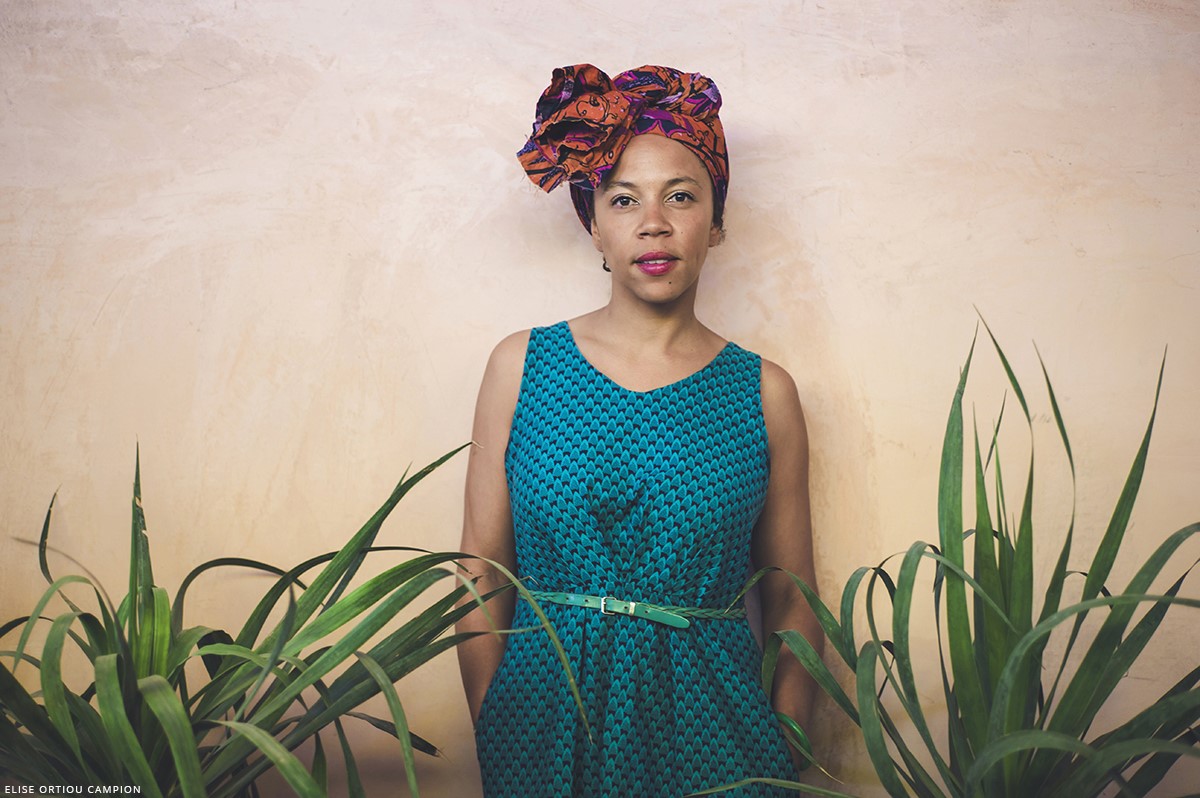Farah Clémentine Dramani-Issifou
Film programmer, curator and researcher
February- April 2024

- Cinema
- Museums
- Social Sciences and Humanities
- Boston
“The question of artefact restitution is closely tied to that of archive collections created in the colonial era, since both play a central role in the process of reconstructing memory.”
As a child, I always found myself to be somewhat othered. As a native of Caen born to a French mother and a Beninese-and-French father, people would constantly ask me what my origins were. I still recall the day when my mother was asked, “Is she a pen pal on exchange?” by a shop owner in the village that we had just moved to. She answered, “No, she’s very much my daughter.” In the French collective imagination, a little girl like me simply could not be French. As I grew up, I encountered a whole host of fantasies surrounding Africa, fueled by the images that I saw on television.
After studying and graduating from international economics and urban planning in Grenoble, Lyon, and Paris, a French-Senegalese friend whom I had met at the Sorbonne was putting the final touches to her first documentary film, which she had shot in Senegal. I remember being gripped by the footage, and by the political strength of her message and of the characters. Boul Fallé paved the way for cinema as a space of struggle. Later, by virtue of the film festivals that I co-created, I became moved by a deep desire to take part in spreading the narratives of the new generation of filmmakers from the African continent and its diasporas. For me, this act was synonymous with reclaiming a space for representation and self-assertion, as linked to the notion of the Whole-World. Then, in 2011, with a number of peers from Benin, I launched the BeninDocs-First Documentary Film Festival, which was held annually until 2016 in Paris and Cotonou. Halfway between France and Benin, the festival created a dedicated forum for showing rare documentary films directed mainly by African filmmakers, while questioning the world through an Afro-diasporic perspective. I later joined Charles Tesson on the feature-length selection committee for the Semaine de la Critique at the Cannes Film Festival, before becoming the artistic coordinator for short films in 2022.
Today, I remain devoted to promoting film works from the African continent, having worked since 2020 with the team at Centre Yennenga in Dakar. Created through the initiative of filmmaker Alain Gomis, this site is dedicated to filmmaking, film training courses, and post-production. I am also a member of the selection committees for the Marrakech Film Festival and Fespaco.
In addition to this, I conduct research and curate exhibitions as a way to reflect on culture as a space of struggle for representation. Following on from my participation in the Doctoral School of Thought Workshops organized by Felwine Sarr and Achille Mbembe in Dakar in 2019, I have been working since 2020 toward a Ph.D. on the theory and practices around exposing African voices in art, while holding regular exhibitions on the themes mentioned above.
For the past decade, Farah Clémentine Dramani-Issifou has been a film festival programmer (Critics’ Week, Marrakech International Film Festival, Villa Medici Film Festival, Fespaco, Doxa) and a curator for various exhibitions, including Un.e air.e de famille (2021); Tofodji, in the footsteps of our ancestors (2022); and Afrotropes – des imaginaires de l’Atlantique noir (2024). In 2023, she was made a Knight of the Order of Merit in Arts, Letters, and Communication by the government of Burkina Faso.
She is currently a Harvard visiting scholar and Harvard Film Study Center associated fellow for the 2023-2024 academic year.
While the debate on the restitution of African heritage has largely focused on artefacts, an increasing number of institution-, artist-, and filmmaker-led initiatives are taking an interest in issues surrounding the accessibility and restitution of African films that remain in the hands of Western institutions, these being located mainly in France and the United States. As underlined in the 2018 Sarr-Savoy Report, the question of artefact restitution is closely tied to that of archive collections created in the colonial era, since both play a central role in the process of reconstructing memory.
In the words of Felwine Sarr and Bénédicte Savoy, the restitution of African heritage entails a precise knowledge of African collections, which is to say, of knowing where—and what—they are.
Restoring African Film Heritage is a project that aims to create a space for research and curatorial experimentation around questions related to the restitution of African film archives from the 1980s onward, while devising the conditions for the return and circulation of this heritage on the continent. Several collections are in fact conserved in the United States, particularly at the Harvard Film Archive, which holds the world’s largest collection of ethnographic film material, as well as an array of contemporary African films (including Med Hondo’s.). The goal of this project is to take part in the historiography of restitutions and contribute to ongoing debates on the subject.
In November 2022, a report by the Harvard Presidential Committee revealed the university’s links with the history of slavery and colonization. My project seeks to investigate this history by analyzing film collections held at the Harvard Film Archive, and to organize events on the subject (such as round-table discussions, film screenings, talks, and so forth). There are also other institutions and entities in the United States that either hold the rights to films belonging to African film heritage (including those of Senegalese filmmakers Paulin Soumanou Vieyra, Ousmane Sembene, Safi Faye, and Djibril Diop Mambety) or are engaged in the restoration of African film, such as The Film Foundation.
I would like to meet any individual or institution to spark exchange, collaboration, and reflection on the crucial, concrete issue of Africa’s access to its own film heritage.
